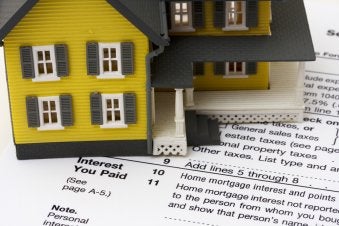Parties that May Be Exempt from Property Taxes
 If you’re like many property owners, you may already think that you’re paying too much in property taxesâand you could be right. In fact, a property tax lawyer in Wichita may be able to help you save a bundle on your property taxes by applying for various exemptions. State and municipal law varies regarding property tax exemptions; a tax lawyer can determine which exemptions you may qualify for.
If you’re like many property owners, you may already think that you’re paying too much in property taxesâand you could be right. In fact, a property tax lawyer in Wichita may be able to help you save a bundle on your property taxes by applying for various exemptions. State and municipal law varies regarding property tax exemptions; a tax lawyer can determine which exemptions you may qualify for.
Homeowners
Many homeowners qualify for the homestead exemption. The regulations regarding this exemption may require you to re-apply each year. The qualifying criteria can vary widely; some states base eligibility requirements on age or income level. If you qualify for the homestead exemption, you won’t need to pay property taxes on part of your home’s value. For example, if you own a $250,000 home, $100,000 of that may be exempt. This means you’ll only need to pay property taxes on $150,000 of the home.
Military Veterans
Be sure to let your property attorney know if you’re a military veteran. Veterans often qualify for property tax exemptions if they were honorably discharged, served during times of war, and consider the property to be their primary residence. However, your area may impose additional restrictions, such as those involving the length of service and whether or not you sustained a disabling injury while in the service.
Senior Citizens and Disabled Individuals
Many states provide property tax exemptions to individuals simply because they’ve had a certain number of birthdays. For example, Kansas has a Safe Senior property tax exemption, which provides tax relief to homeowners who are at least 65 years old and meet income qualifications. Some homeowners may also be granted relief if they can prove that they have a disability. For example, a property attorney might use an individual’s eligibility for Social Security disability benefits as proof of qualification.
Home Renovators
Even if you’re not a senior citizen, a disabled individual, or a military veteran, you may still qualify for a property tax exemption if you make certain upgrades to your home. Home improvement exemptions vary considerably; your property attorney can find programs that apply to your area. For example, you may gain property tax relief simply by improving the energy efficiency of your home with solar panels or other upgrades.

